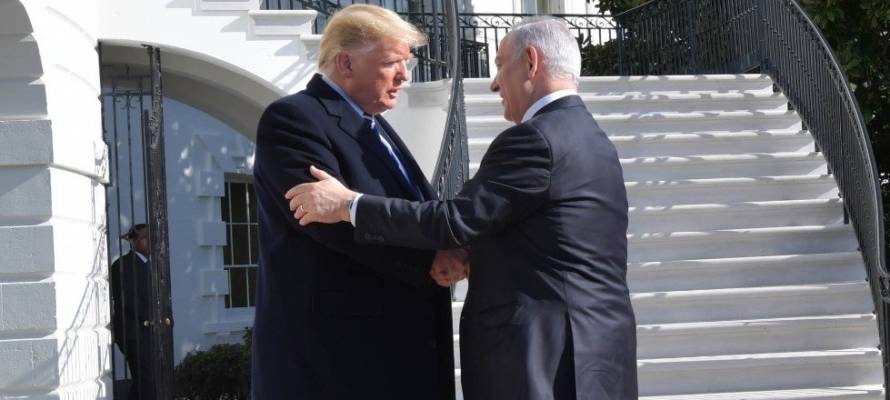With Israeli leaders by his side, the American president prepared to “make history” by releasing an ambitious Mideast peace plan that he believes has a “very good chance” of success.
By Associated Press
President Donald Trump said Monday that while the Palestinians have already rejected his proposed Mideast peace deal with Israel, he expects they ultimately will agree to the blueprint the White House plans to announce following meetings with Israeli Prime Minister Benjamin Netanyahu and his chief challenger Benny Gantz.
While Trump is expected to publicly release the plan on Tuesday, the Palestinians soundly rejected the plan, without first learning its contents.
“It’s something [the Palestinians] should want,” Trump said in the Oval Office with Netanyahu. “They probably won’t want it initially. I think in the end they will. I think in the end they’re going to want it. It’s very good for them.”
He called it a “suggestion” for Israel and the Palestinians and then referred to the long-awaited plan as a “very big plan.” At the same time, Trump hinted that he knows the Palestinians might not accept it.
“We’ll see what happens,” Trump said. “Without them, we don’t do the deal. That’s OK. … We think that there is a very good chance that they’re going to want this.”
‘Deal of the Century’
On Monday, Netanyahu hailed Trump’s “Deal of the Century” as a chance to “make history” and define Israel’s final borders.
In the run-up to Israel’s March 2 vote, Netanyahu has vowed to extend Israeli sovereignty to all Jewish towns in Judea and Samaria.
Meanwhile, Palestinian Prime Minister Mohammad Shtayyeh denounced the still-unpublished proposal again Monday in Ramallah, saying it “doesn’t constitute a basis for resolving the conflict.”
The Palestinians have boycotted the Trump administration for two years.
A Palestinian official said that President Mahmoud Abbas has rejected overtures from mediators in recent weeks to arrange a phone call with Trump. The official spoke on the condition of anonymity because he was discussing a classified diplomatic issue.
In recent years, the Trump administration recognized Israel’s capital, Jerusalem, moving the U.S. Embassy there. It also closed Palestinian diplomatic offices in Washington and cut funding to the Palestinians.










